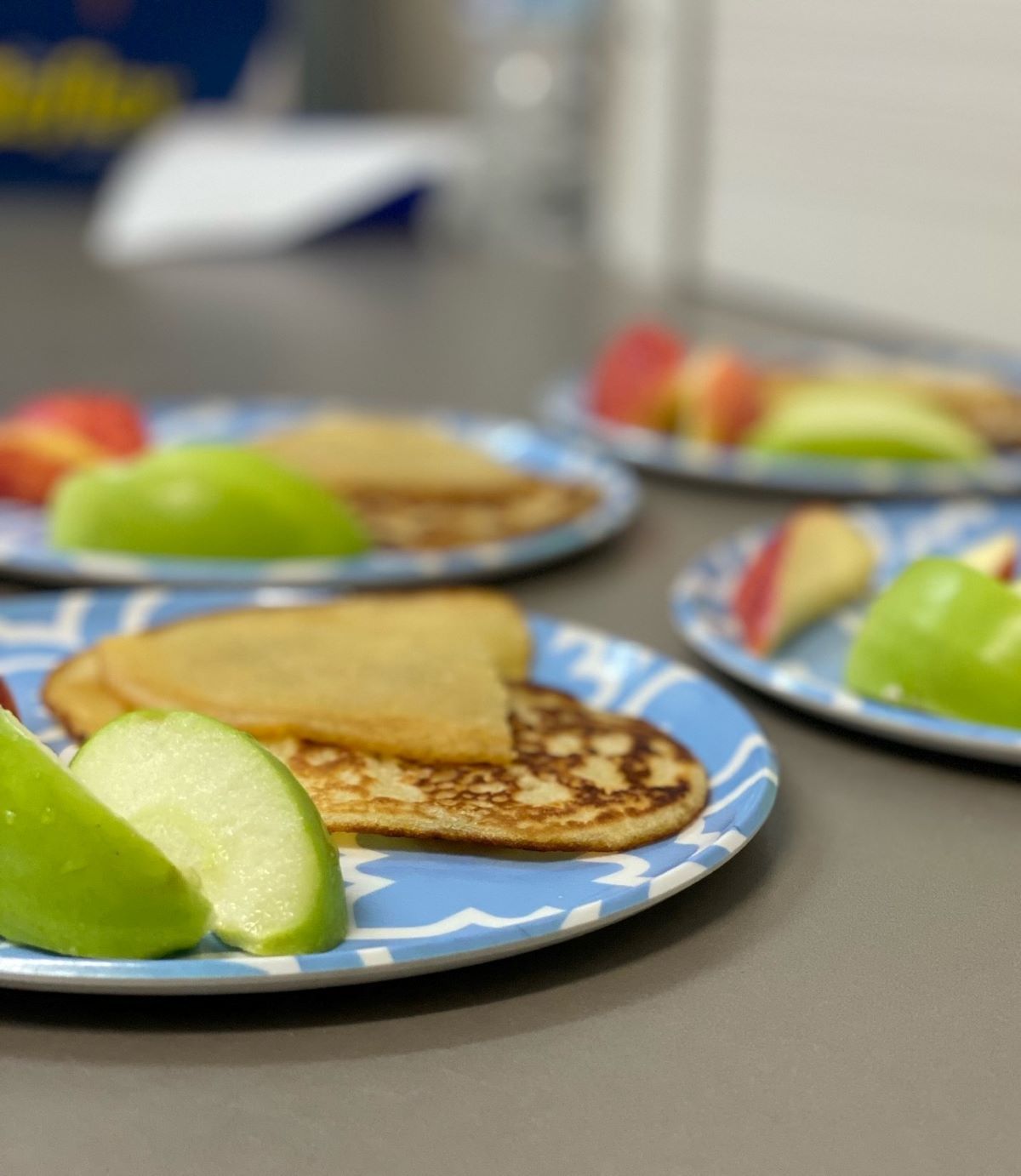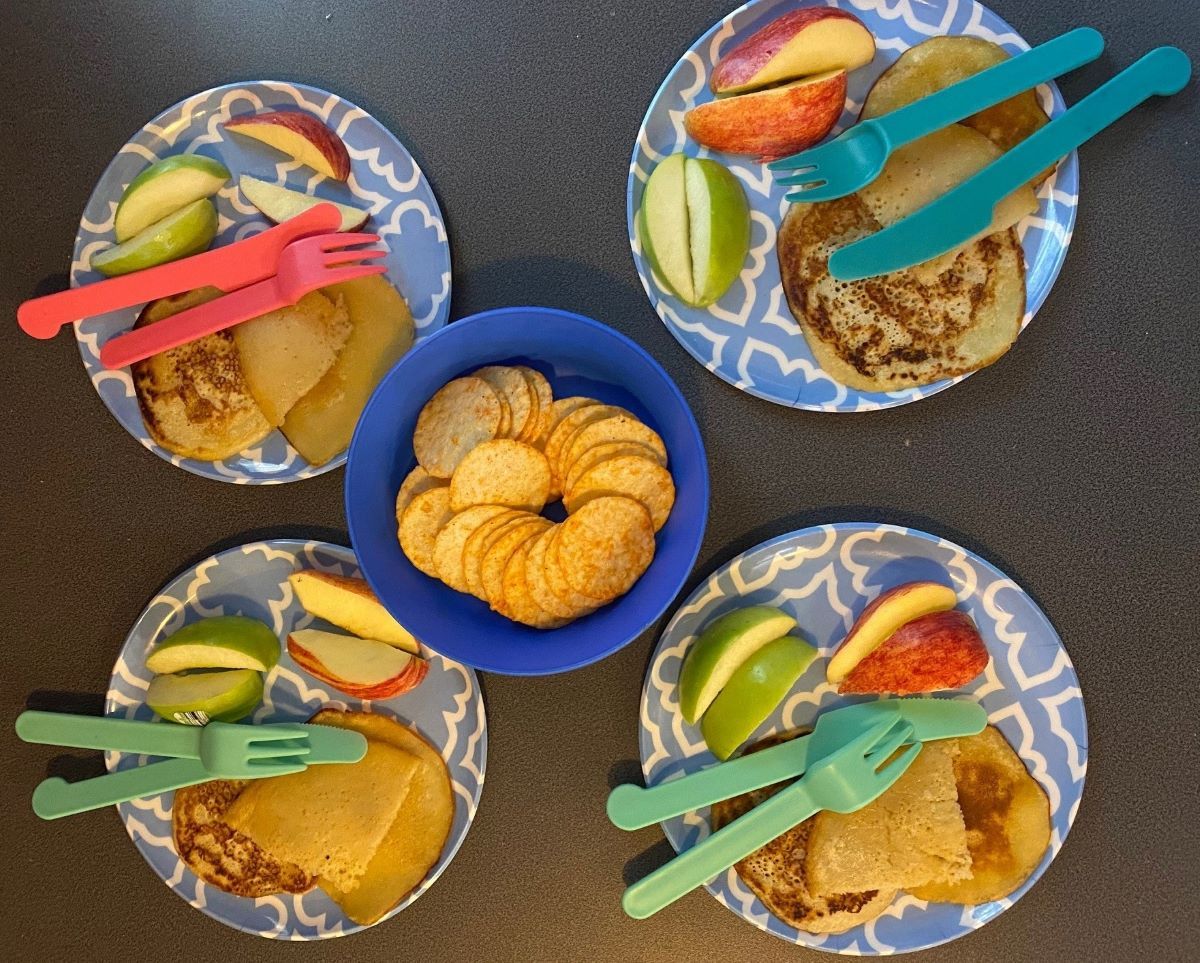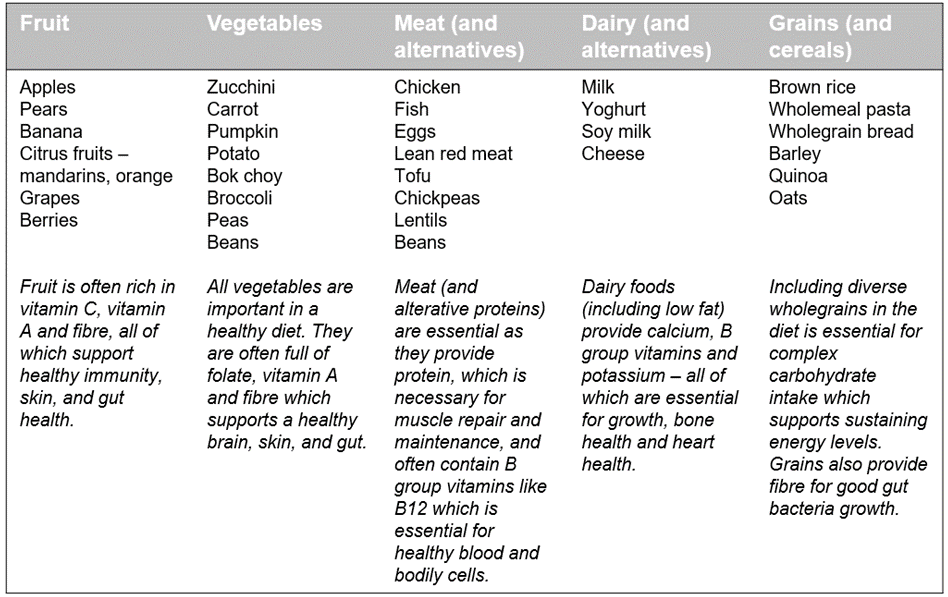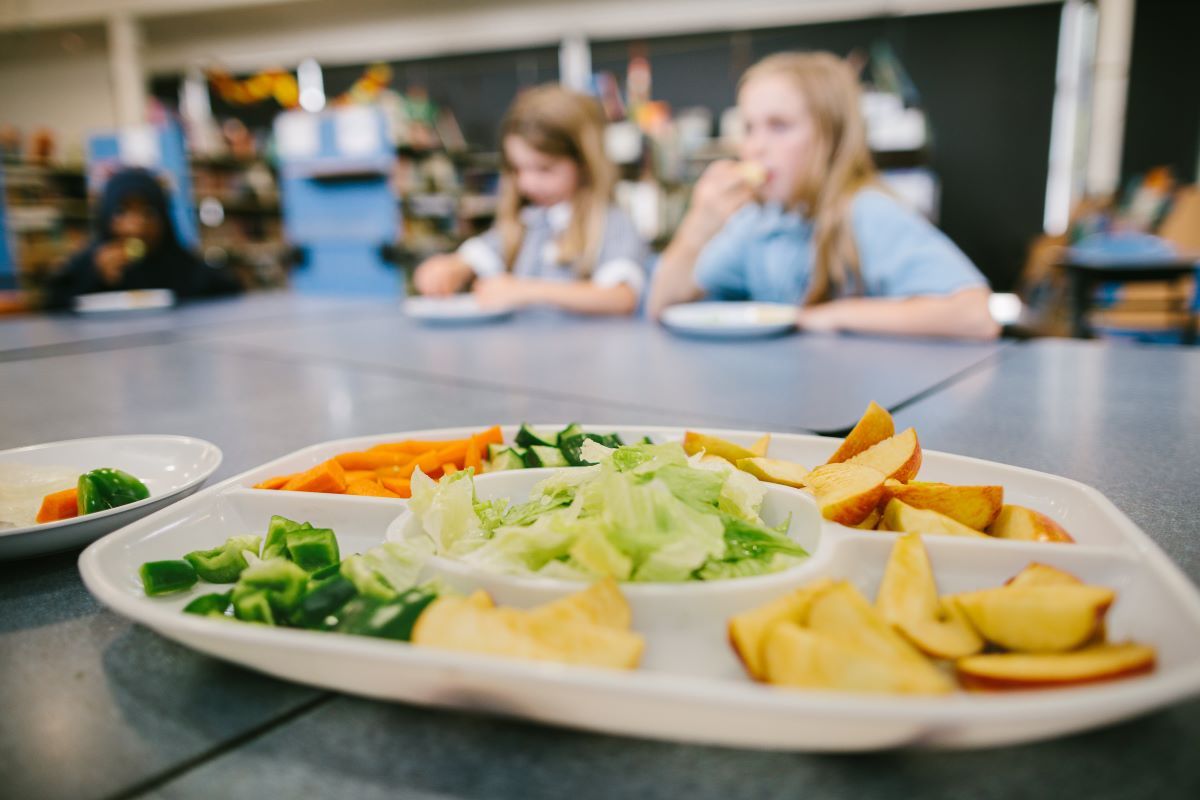News & Blog

Blog - 11 August 2021
Quick and Easy Ways to Fuel your Body with Food
It seems like everyone has an opinion on what it means to be ‘healthy’ these days. Everything from unrealistic fad dieting, cutting out food groups, to unnecessary fasting. One thing they all miss though is the one central fact of food; the importance of fuelling our bodies with food to support a healthy lifestyle!
There are many things that factor into a healthy lifestyle. For example, achieving and maintaining a well-balanced diet. Food acts as an energy source for our brain and helps us with processing how we think, feel and what we do. Eating an array of nutritious foods that are delicious and flavourful helps to support a healthy growing body.
Other important factors include getting enough sleep, drinking plenty of water, and engaging in enough stress release, for example, exercise, partaking in hobbies and spending time with friends and family. Engaging in healthy behaviours is particularly important for our children, as they are rapidly and continuously growing and developing into healthy humans.

The effects of lockdown on our bodies
With all of this in mind, I think it is also important to reflect on how difficult the last 18 months have been on our bodies, families, and lifestyles. We have all gone through many emotional, social, and physical changes and challenges thanks to the impact of COVID-19 lockdowns and the global pandemic.
So naturally, our behaviours have changed.
What does this mean for healthy growing children?
Some prominent behavioural changes that many children have developed are poor eating habits, specifically eating more unhealthy food and sugary drinks. A poll from the Royal Children’s Hospital Melbourne of over 1,500 primary school aged children found that 25% of children were eating more unhealthy food and 43% reported consuming sugary drinks or treat foods most days of the week during lockdowns. Other studies across the world share similar results, which suggests that there has been a global impact on nutrition and healthy eating during the COVID-19 pandemic. The influence of poor nutrition, limited exercise and increased stress has a negative effect on weight gain, poor dietary choices over time, and poor health outcomes such as diabetes (Type 2) and cardiovascular disease.
I’m not writing this to scare you though. I’m writing to share what you can do to support your children in achieving a healthy diet and a healthy lifestyle. After all, we all want to support our child’s growth, and I’m here to discuss how you can do that through optimal nutrition and healthy choices.
First and foremost, let’s discuss why fuelling our body with food is important for healthy growth and development in children. Providing nutritious, well balanced and enjoyed food to our kids plays a significant role in brain development, muscle development, and long-term positive food behaviours. A balanced diet for children (and adults!) provides essential nutrients, vitamins and minerals that allow their bodies to function properly.
I want to focus on the idea of fuelling our bodies for good brain growth. Or in other words, to ‘nourish’ our bodies with healthy food to support healthy brain development. To fuel our bodies in support of healthy brain development means consuming enough food and nutrients to support our daily activities. It means including food from each of the five food groups - fruit, vegetables, meat (and protein alternatives), dairy (and alternatives), and grains. And ultimately, it means fitting in healthy food options in line with your personal lifestyle and routine.
How food fuels young, growing brains day today
Provide your children with enough food to support their daily activities Eating enough nutritious food every day is important for healthy growth and development. Eating well supports learning capabilities, developing emotions, and supporting bodies for movement. Remember that children are constantly using their brains to understand the world around them, whilst also being active, and learning new skills at school. It is important that they have enough nourishment to support their development. Incorporating breakfast, morning tea, lunch, afternoon tea, and dinner (plus dessert if you so wish!) is helpful in achieving optimal nutrition every day.
Incorporating foods from each of the five food groups There is so much noise on social media about cutting certain food groups from your diet for better health outcomes. When realistically, including food from the five food groups supports children’s growth and development. Consuming a diet packed with diverse foods like fruits, vegetables, grains, dairy foods, and protein-based foods promotes good energy levels, vitamin, and mineral intake which in the end is essential for good health. I’ve included a few quick and easy go-to’s in the table below.

What about the rest of the foods? Cake, lollies, fast food – they should ideally be limited. They don’t need to be cut out from our diets because this can promote unhealthy ideas around being ‘good’ or ‘bad’ when food should be neutral. Incorporating enough food from the five food groups should provide you with enough sustenance to support a healthy growing body and mind.
- Incorporate healthy choices into your routine Very much easier said than done. It is important to try not to flip your diet on its head and only eat ‘healthily’ if you’re not used to it. Start slow, add some extra veggies to a dinner one night and see how it goes. Another good goal is trying to eat 2 pieces of fruit a day, whatever feels achievable to you. Start small and gradually add more and more ‘healthy’ foods and before you know it will become easy!
Tips for fuelling your body

Understand that you can’t always be perfect Sometimes life throws curve balls at us. Like a global pandemic for instance. Building resilience and adaptability is really hard. Therefore, adapting our diets to maintain healthy choices can be difficult. But that doesn’t mean that you can’t keep trying. When you’re down, try again. Set new goals and parameters, work out what you can do now and what you want to do in the future. Share compassion with yourself and your family. This shows to your children that there is always a reason to try to eat healthily.
Lead by example What you cook for your children should be what you cook for yourself. Eating healthy food demonstrates that you think it’s important in your life. Your children can see you eating well, so they also want to eat well. These skills are what makes healthy choices second nature and support their development over time.
Body and food neutrality Food should not be categorised into ‘good’ or ‘bad’ food. It’s just food. The same goes with your body. Your body compared to someone else’s is not better nor worse. They just exist. Demonising food creates a sense of worry that can ultimately manifest unhealthy food behaviour. We want to keep food neutral and support a balanced diverse diet that flourishes positive feelings about eating healthy, and thus guiding childhood growth.
These are some simple tips to support fuelling your children’s’ bodies and your own! It is important to work out what works for you because that is the goal for sustainable healthy eating. Everyone shares a different path; however, the important thing is that children are provided with the capacity to grow into healthy adults and fuelling their bodies with nutritious food is a great way to do so.
The Experimental Cookbook competition is aimed to get children busy in the kitchen with nutritious recipes. They have a chance for their recipe to be featured in the upcoming cookbook, so head over to https://campaustralia.com.au/cooking-comp for more information and Terms and Conditions.

Kelly Bramble is an Accredited Practicing Dietitian who is passionate about providing realistic, meaningful, and personalised nutrition advice to her clients, whilst maintaining a non-diet approach. She encourages a lifestyle free from fad-diets and conflicting health information. She believes that sharing knowledge and education is one of the most important factors in achieving healthy eating and lifestyle outcomes for people.
Posted in:
